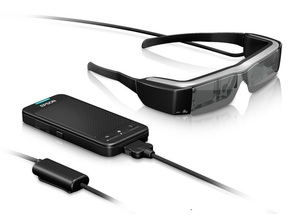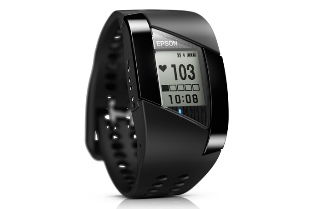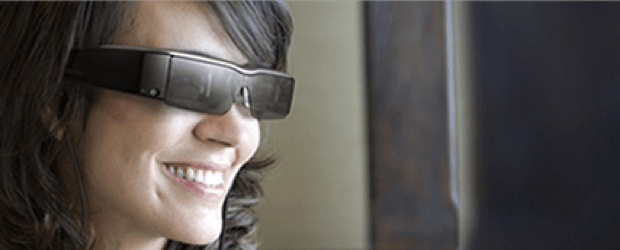Printing and imaging vendor Epson displayed two contrasting wearable technology products at this year’s CES show in Las Vegas; one of them with a distinct Canadian flavour.
Epson demonstrated a 3D augmented reality solution at the CES show floor incorporating its Moverio BT-200 smart glasses. The company has partnered with Vancouver-based 3D augmented reality applications developer Ngrain on an app that can take all data sources on physical resources such as manuals, videos, AutoCAD drawings, inventory, and maintenance records and overlay that it on an interactive 3D model.
Ngrain and Epson are also working on a connected 3D augmented reality industrial application for the Epson Moverio BT-200 smart glasses. Ngrain has agreed to provide a true optical see-through augmented reality application on the Metaio platform for industrial and manufacturing environments on Epson hardware.

Founded in 2000, Ngrain has expertise in 3D computer graphics and their technology has been used by Lockheed Martin, Raytheon, Microsoft, and the Canadian government.
The Ngrain app enables mobile workers on the shop floor to monitor, control, and optimize manufacturing activities in real-time through an interactive, wearable heads-up display. It can also connect to live enterprise data sources such as ERP, CRM, PLM, and SCADA industrial control systems. According to Epson, workers will now be able to familiarize themselves with the parts of a complex assembly with a simple tap, call up work orders and inventory information in real-time, and get step-by-step guidance on how to complete procedures using 3D data visualization.
The Epson Moverio BT-200 smart glasses are available through the channel for $699.99. The glasses are binocular smart glasses optimized for augmented reality applications. Micro projectors located on each side of the lens project transparent overlays of digital content directly in the user’s field of view over the real-world environment. In addition to the Moverio BT-200’s sensors for head-motion tracking and hands-free navigation, the smart glasses include a front-facing camera for video as well as image capture that detects real-world markers for augmented reality applications.
The Epson smart glasses were not the only wearable product the company showcased at CES this year. The company also announced the Epson Active product line for sports, fitness and health markets. The Active line includes the Pulsense continuous heart rate activity monitor, the Runsense GPS sports and running monitor, and M-Tracer golf swing analyzer.
The Active wearables release is being supported by celebrity trainer, Gunnar Peterson; Olympic silver medalist, Meb Keflezighi; and golfer David Leadbetter.
Leadbetter said that golf is a highly technical sport where the smallest details and adjustments can make all the difference in getting the best out of your game. The Epson M-Tracer golf swing analyzers provide real-time feedback and helps golfers understand exactly what is happening throughout their swing.

The Pulsense and Runsense are wrist wearables, while the M-Tracer is fitting for golf clubs. The M-Tracer is mounted to the bottom of the golf grip and analyzes golfer’s skill levels for all ages. It records swing path of the club, club-head speed, club-head path, face angle at the time of impact, tempo and more.
Epson also confirmed another partnership with Finnish vendor Augumenta Ltd., which will provide software tools to add hand-gesture controls to applications for the Moverio BT-200 smart glasses. The Augumenta Interaction Platform SDK enables gesture control and virtual inputs on smart glasses and other wearable devices in enterprise and consumer applications.




